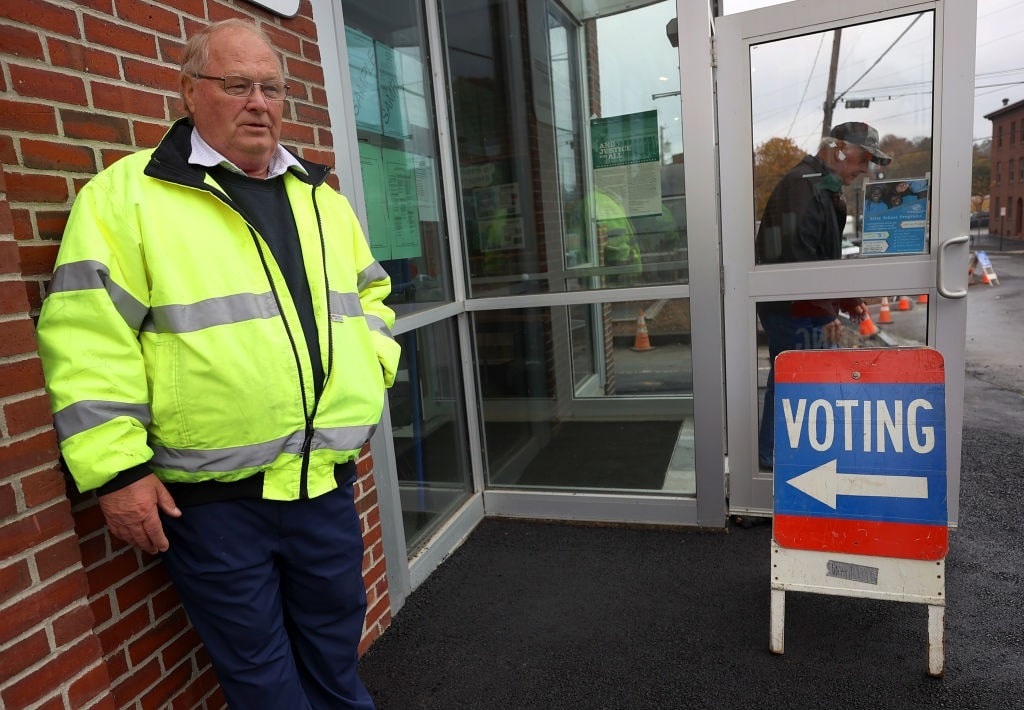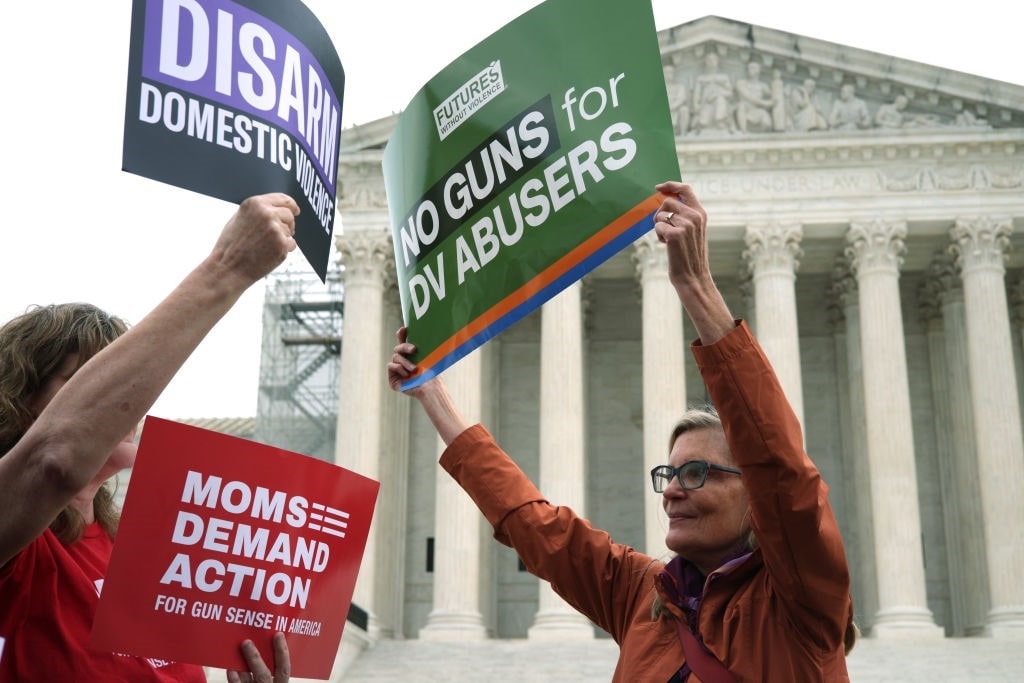It’s a new year – and that means new gun laws go into effect across the nation. So how fares the right to keep and bear arms as we go into 2024? More than a dozen states made changes to how they interpret the Second Amendment.
Don’t Take Your Guns to Town
The controversial Senate Bill 2, which became law in California on January 1 of this year, bans even those with concealed carry licenses from carrying their firearms at a bevy of public places like bars, houses of worship, parks, public events, stadiums, casinos, financial institutions, medical facilities, and on public transportation. The new gun control law was blocked on December 26, 2023, by a US district judge who called it “repugnant to the Second Amendment,” but a federal appeals court stayed the ruling, allowing the law to take effect for now. This stay is temporary, however, pending the results of the litigation. Even while in effect, the law won’t be enforced in Sutter County, California, according to Sheriff Brandon Barnes and District Attorney Jennifer R. Dupré.

(Photo by David L. Ryan/The Boston Globe via Getty Images)
A new rule for Delaware in 2024 enables officers to confront people in a “Safe School and Recreation Zone” or at a polling place on Election Day who they suspect may be armed. It also establishes the crime “Possession of a firearm in a Safe School and Recreational Zone” as a class E felony, which makes it punishable with a fine ranging from $1,000 to $6,000 and a maximum sentence of five years in prison.
Sections 4 and 7 of Hawaii’s Act 52, the state’s answer to the Supreme Court’s ruling in New York State Rifle & Pistol Association, Inc. v. Bruen, took effect on January 1. Section 4 refines the requirements to get a license. No one in the Aloha State can now take possession of a firearm – even as a gift or by inheritance – without first obtaining a permit. Section 7 establishes the strict requirements for obtaining a concealed carry permit.
The new law restricts the places in which one can carry a weapon and requires a safety training course as part of the permitting process. Like New York, Hawaii was forced by the Supreme Court to change its “may issue” policy to “shall issue.” However, though a permit is now guaranteed so long as one jumps through the hoops required, those hoops are now more numerous and somewhat harder to clear.
The latest out of Oregon makes carrying a weapon during public patrols or drills or when disrupting government proceedings an act of “paramilitary activity” that can be investigated by the Oregon attorney general. It’s part of a larger domestic terrorism law that has proven controversial because of how vague it is and how broadly it might be applied.
Ghost Guns, Assault Weapons, and High-Cap Mags, Oh My!
An Illinois law is now in effect that bans “high-powered” semiautomatic rifles and “high-capacity” magazines. The Protect Illinois Communities Act outlaws a variety of rifles, including the popular AR-15 platform and anything chambered in .50 caliber. Anyone who owned such a weapon prior to the new year is allowed to keep it – but only after filing an affidavit with the Illinois State Police.

(Photo by Hans Gutknecht/MediaNews Group/Los Angeles Daily News via Getty Images)
A new law that took effect in Connecticut last year updates an older rule. The various sections – including a ban on bulk purchases, the end of open carry, and new prohibitions on so-called assault weapons and high-capacity magazines, amongst others – had different effective dates, but the one most relevant to the new year is the rule for so-called ghost guns. Connecticut banned unregistered “ghost guns” in 2019, but that law grandfathered in any weapons assembled prior to its enactment. As of January 1, 2024, all pre-ban homemade firearms were to be registered with the state.
Colorado chose to attack the home gunsmithing side of the right to keep and bear arms. The Centennial State now prohibits the assembly or transfer of any “untraceable” firearm (that’s “ghost gun,” according to most of the media and gun grabbers) using a kit or a 3-D printer. Within hours of the new law taking effect on New Year’s Day, however, two Second Amendment advocacy groups – The National Association for Gun Rights and Rocky Mountain Gun Owners – filed suit against it claiming it doesn’t meet the new “historical standard” test from the Supreme Court’s Bruen decision. The new law would require all firearms in the state to carry a manufacturer’s serial number. “We’ve got to find a way to prevent the genie from getting out of the bag on ghost guns,” Governor Jared Polis told CPR News, “because it threatens to undermine all the other gun safety measures that Colorado has, including universal background checks.”
Home gunsmithing has been an American tradition since before there was a United States. It isn’t just the kits or 3-D printing technology that makes it easier; like many survival and DIY skills, the internet – especially YouTube – means anyone interested won’t have to look far to figure it out. And, of course, this is the sort of law that will only affect those who care about the law: generally, the kind of folks who don’t go around committing firearms-related crimes. To join Governor Polis in mixing up common idioms, good luck stuffing that cat back in the bottle.
Extreme Risk Protection Order – A Real Red Flag
A new law in Minnesota now allows authorities to ask courts for “extreme risk protection orders” to “temporarily” disarm those who are deemed an immediate threat to themselves or others. The Land of 10,000 Lakes joins more than 20 other states and the District of Columbia in enforcing so-called “red-flag laws” that disarm people without any need for first convicting them of a felony or violent crime, which is otherwise considered the standard of due process in the rest of America.
Minnesota judges can now issue two types of orders: an emergency order that lasts 14 days or longer orders that can last up to a year, initially, with the potential for extensions. The state also allows no-knock warrants. Therefore, it’s entirely possible – perhaps even likely – that someone who has never knowingly and intentionally committed a violent or gun-related crime, or any felony at all, could be secretly “deemed a threat to themselves or others” at an ex parte hearing (ex parte meaning the target of the warrant request isn’t present and likely doesn’t know about the hearing), after which armed officers could bust in the person’s door without first announcing their authority as police, thus leaving the stunned but armed homeowner no reason to assume they’re anything more than dangerous home invaders intent on violence.
What could possibly go wrong?
Four major gun control measures take effect in the Great Lake State this year. Combined, they require “safe storage” of firearms and universal background checks even on private transfers, ban possession of a firearm by anyone convicted of domestic violence, and establish a “red-flag” rule allowing so-called extreme risk protection orders. Like Minnesota, Michigan now combines secret, ex parte extreme risk protection order request hearings against citizens who have been convicted of no crime with the option of no-knock warrants, which allow officers to raid a person’s home without disclosing that they’re the police, though some localities ban this practice.
Gun Laws of 2024 – So Much More Than Just Bans
 Washington is expanding its ten-day waiting period to purchases of any firearms, not just semiautomatics. Gun buyers will also have to show that they have passed a safety training program within the last five years.
Washington is expanding its ten-day waiting period to purchases of any firearms, not just semiautomatics. Gun buyers will also have to show that they have passed a safety training program within the last five years.
This new law affects Washington residents buying firearms in-state, but it also affects Washington residents buying weapons in neighboring Idaho. The Gem State allows Washingtonians to buy firearms there but requires them to follow the laws of both states.
The Garden State rings in the new year with increased penalties for gun-related crimes. The new law allows New Jersey to charge anyone who commits a firearm trafficking violation for a weapon that is then used in a crime resulting in a death with a first-degree charge – including out-of-state traffickers, who supply around 80% of the guns used in crimes in New Jersey, according to the governor’s office.
As of January 1, the Tennessee Department of Homeland Security is allowed to offer vouchers to reduce the cost of voluntary firearm safety courses. Participants will receive a $100 enhanced handgun carry permit application and processing fee reimbursement, and the state’s Department of Safety will pay up to $30 to approved handgun safety schools for each person who takes the course for the first time.
Alabama doesn’t have any new gun laws specifically. However, on the related note of rules for certain people who do carry guns, the Cade Noah Act now requires law enforcement officers to complete one hour of training on what to do when interacting with people with sensory needs or “invisible disabilities” – like hearing and eyesight impairments or mental disorders – every other year. The goal, of course, is for officers to be more sensitive to such issues and therefore less likely to use their weapons when not actually necessary.
Gun Laws to Be and Not to Be
Arizona got no new gun laws this year, yet the Grand Canyon State bears mentioning as an aside because the Republican-controlled legislature passed three new laws that would have lessened restrictions on the right to keep and bear arms if not for Democrat Governor Katie Hobbs vetoing them. Senate Bill 1109 would have removed Arizona’s redundant state-level prohibition on suppressors not possessed in compliance with federal law, Senate Bill 1331 would have reduced “gun-free zones” where law-abiding citizens are left defenseless, and Senate Bill 1428 would have strengthened the state’s pre-emption law to keep local governments from banning gun shows.
While the law hasn’t taken effect yet, West Virginia Governor Jim Justice signed a bill on March 1, 2023, that allows people with concealed carry permits to take firearms onto public college and university campuses. That law will go into effect in July of this year.
New year, new laws – a lot has changed overnight. But there’s more to come, as well. Legislators across the nation have introduced a slew of new bills to either tighten the grip of strict gun control or, in some cases, to loosen it and let freedom ring.




